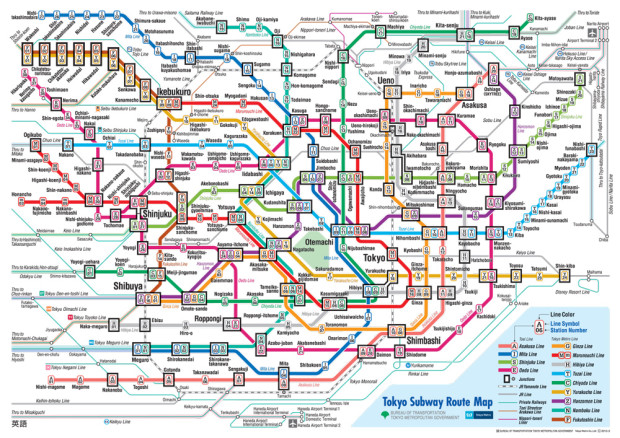Tokyo One Month In
It’s now approaching one month since I arrived in Tokyo. As you can imagine, it’s been a whirlwind of new adventures and experiences trying to settle into this amazing city.
Here’s a few things I’ve learnt thus far.
1. It’s cheaper than Singapore Or, perhaps I should say, it’s cheaper for me, than Singapore. Everyone talks about Tokyo being a crazy expensive place to live. I guess it’s all relative. When I look at my weekly grocery bills, the cost of dining in mid-range restaurants and the prices for music and camera gear it’s clear to me that Tokyo is significantly cheaper for almost everything I would buy or consume on a regular basis than Singapore.
2. But, the choice can be overwhelming Bread and bicycles were high on my list when moving here. I wanted to find a decent bakery and get myself a good bike. But, there are so many amazing boulangeries and patisseries and tonnes of excellent bike shops. And, the thing is here in Tokyo you are presented not just with lots of stores or lots of stock, but lots of choice. Entire ranges, every option, limited editions, it’s all here if you have the patience, or psychological inclination, to look.
3. The service is amazing I’m sure there will be problems and frustrations eventually, but right now I’m constantly amazed by how good and helpful the service is. I’ve spent a fair bit of time in Tokyu Hands, which has to be one of the most brilliant stores in the world for DIY hardware and creative projects. And, my already nascent love affair with the multi-story electronics and homewares store Bic Camera has blossomed now.
4. But, you have to learn the language While there are lots of signs in English, most people seem to only have a limited grasp of the language at best. But, unlike my experience in Hong Kong, when you try to speak the language locals really appreciate it and are very encouraging. Right now I’m doing three private lessons a week and even knowing a little Japanese has helped enormously in my day to day experiences.
5. Public transport is brilliant OK, Taxis are a little on the expensive side, certainly compared to Hong Kong. But, they are loads more comfortable and most drivers are very good (or at least good at making sense of their GPS. And, the underground (Metero) is brilliant, fast and reliable, with excellently signposted stations.
6. But, a little preparation makes all the difference I quickly learnt to not even bother catching the train without having worked out ahead of time the exit I wanted. Some of Tokyo’s stations are huge and most have multiple exits that can take you a long way underground. And, when it comes to taxis, having your address written in full in Japanese, will make a huge difference, at least until you can say it yourself.
7. The food is amazing You already knew that right? Japanese cuisine is varied and extraordinary and it’s a privilege to now have the time to explore it. Moreover, I’ve had simply brilliant pizzas, perfectly cooked pasta, delightful Indian curries and some really impressive burgers.
8. You need a sense of adventure But, this is Japan after all, so menus are mostly, or totally in Japanese and at some points you just have to take a risk and try something while not being sure what you will get. And, although restaurants might have different themes and styles, most are built around the same idea of small tables, maybe a common table and a bar around an open kitchen, which speaks to the way food is adapted to local habits and custom.
That’s enough for now. I’m constantly being surprised, every day, by this place. I’m really enjoying living somewhere that is polite, civil, maybe even a little old-fashioned. There’s a sense, everywhere I go, that there is a “correct way” to do things and I find that deeply comforting to be honest.





